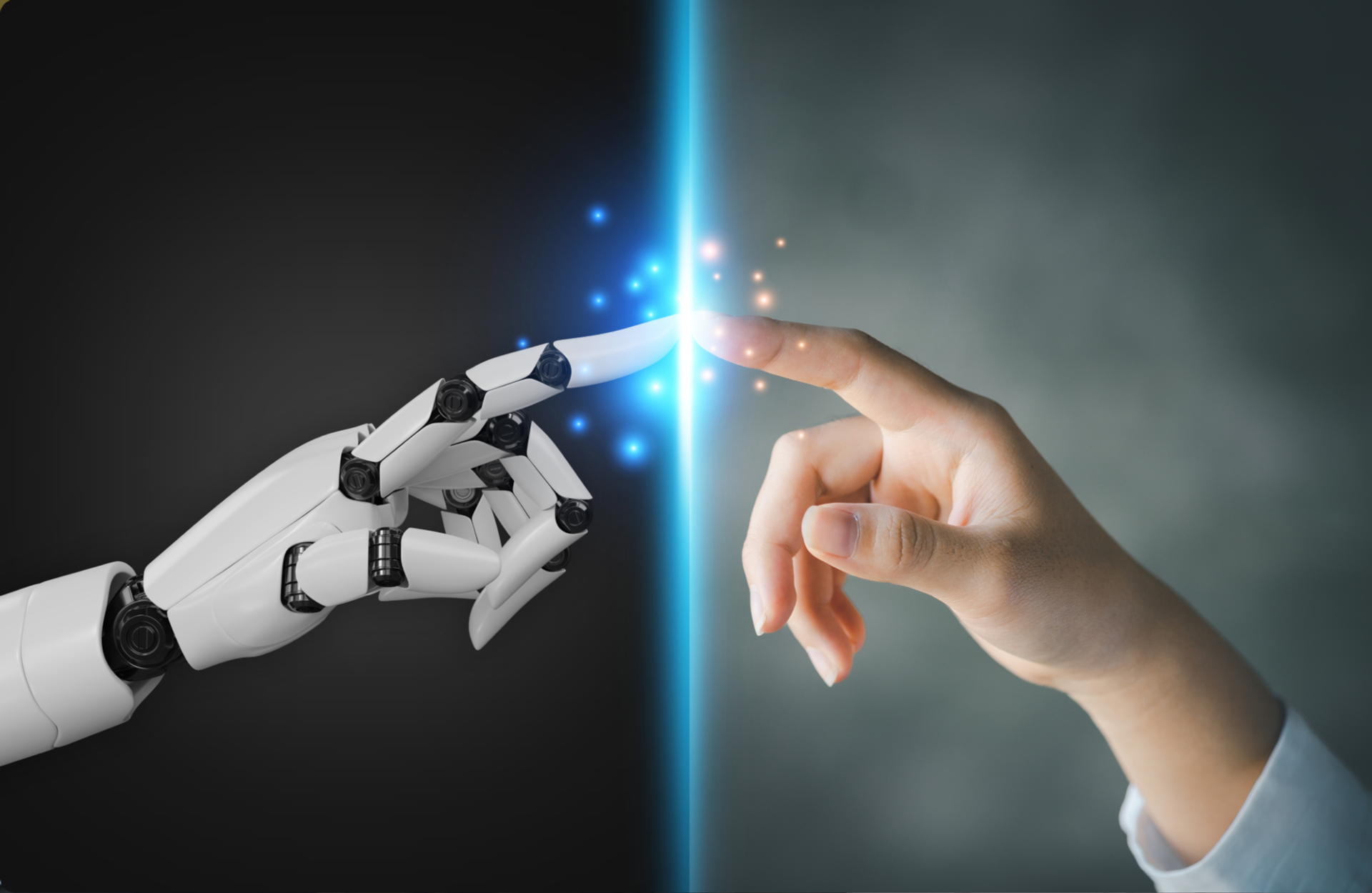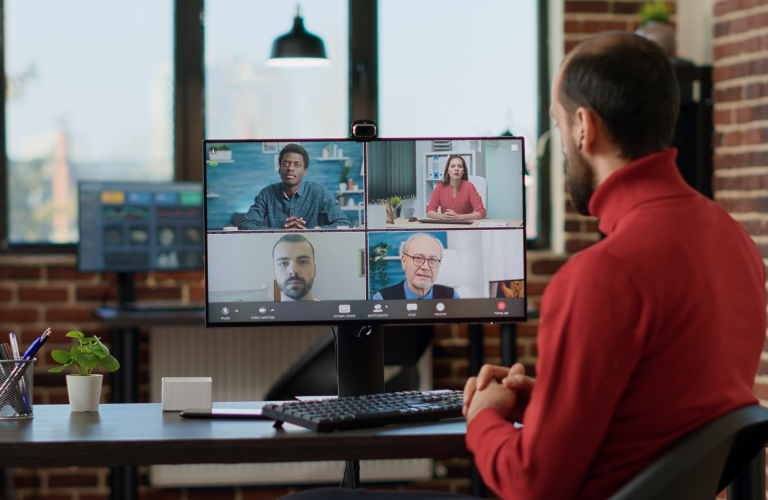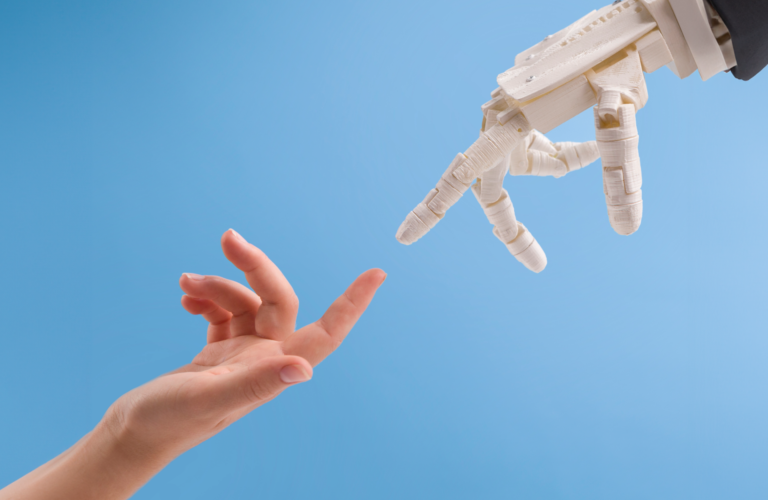It’s hard to escape the chatter about AI. Whether it’s the latest viral filter on social media platforms, the personalized recommendations on streaming services, or the groundbreaking advancements in healthcare, finance and remote work, A.I. is impacting nearly every aspect of our lives.
In the midst of ongoing A.I. advancements, one significant area of impact is in how companies hire new employees. Let’s explore how A.I. is changing the methods organizations use to find and attract top talent, and what this means for the future of employment.
Understanding A.I. in hiring processes
In the context of recruitment processes, artificial intelligence is used to automate and optimize various stages of hiring, from sourcing candidates to assessing their qualifications. Traditionally, recruitment involved manual processes like reviewing resumes, conducting interviews, and making hiring decisions based on subjective judgments.
It’s essential to recognize the deep impact of A.I. in recruitment for both employers and job seekers alike. A.I. algorithms can now analyze vast amounts of data to identify patterns and predict candidate suitability. According to USC, a full 55% of companies are investing more toward automated recruiting measures that use AI.
Benefits and promise of A.I.
A.I. has the potential to revolutionize the way we approach recruitment, not just for employers but also for candidates seeking their next career opportunity.
For employers it’s mostly about efficiency: where stacks of resumes pile high, and every minute counts in the quest to find the perfect candidate.
Gone are the days of manual screening, replaced by A.I. algorithms that can process thousands of resumes in a fraction of the time. This newfound efficiency not only accelerates the hiring process but also ensures that no qualified candidate goes unnoticed, ultimately leading to better hiring decisions and a stronger workforce.
Through advanced analytics and machine learning, A.I. algorithms analyze candidate data to uncover hidden gems—individuals with the right blend of skills, experience, and cultural fit.
One of the most profound impacts of A.I. in recruitment is its ability to mitigate unconscious bias in the hiring process. Traditional recruitment methods can be influenced based on gender, ethnicity, or educational background. However, A.I. operates on a level playing field, focusing solely on candidate qualifications and skills. By removing human judgment from the equation, A.I. algorithms ensure that candidates are evaluated based on their merits alone. This reduction in bias not only promotes fairness and equality in hiring but also leads to a more diverse and inclusive workforce.
Now, let’s talk about the perks for candidates. When it comes to job hunting, A.I. is making things easier. With AI-powered job platforms and chatbots, talent can walk through the application process without breaking a sweat. A.I. gives personalized job recommendations based on skills and interests.
Challenges and concerns
While A.I. brings many benefits to the table, it also raises some important cons.
- Biased Resume Selection: One of current challenges is how A.I. is trained for applicant tracking systems (ATS). Present LLMs have been uploaded with millions of resumes to learn how to select the best applicants. But as the old saying goes; “garbage in garbage out”. That’s because there are an overwhelming number of white and asian males in the technology industry compared to other backgrounds. These men have similar educational backgrounds, interests, and social circles. So when an A.I. that has been trained this way selects resumes…yep you guessed it. The A.I. will favor white and asian males because that is what it believes is the preferred background based on volume of data and metrics. This means that if you are not in the “preferred demographic” there is a higher probability of rejection by the ATS.
- Job Displacement: One of the biggest concerns is the fear that A.I. might replace human jobs in recruitment. As A.I. becomes more sophisticated, there’s a worry that tasks traditionally performed by recruiters could be automated, potentially leading to job losses. This raises questions about how to ensure that A.I. complements human efforts rather than replacing them entirely, preserving the human touch in recruitment.
- Privacy and Data Security: A.I. systems collect and analyze vast amounts of personal data from job applicants, including resumes, social media profiles, and interview responses. There’s a need to ensure that this data is handled responsibly and ethically, with appropriate measures in place to protect candidates’ privacy and prevent misuse of their information.
- Lack of Human Touch: Finally, there’s a concern that relying too heavily on A.I. in recruitment could lead to a loss of the human touch. While A.I. can streamline processes and improve efficiency, it’s essential to remember the importance of human interaction in building relationships with candidates. Candidates may feel disconnected or undervalued if their interactions with employers are solely through automated systems, highlighting the need to strike a balance between A.I. and human involvement in recruitment.
The future of A.I. and recruitment
As we look ahead, the future of A.I. in recruitment holds tremendous promise, driven by a commitment to harness its potential while addressing key considerations.
Rather than replacing recruiters entirely, A.I. can serve as a trusted assistant, handling repetitive tasks and providing valuable insights to inform decision-making. This collaborative approach empowers recruiters to focus on what they do best – building relationships, understanding candidate needs, and making strategic hiring decisions.
As A.I. tools and algorithms become more sophisticated, recruiters must adapt and learn how to leverage these technologies effectively. This requires investing in training programs and resources to enhance recruiters’ digital literacy and analytical skills.
By embracing a culture of innovation and experimentation, organizations can stay at the forefront of recruitment trends and drive meaningful change that benefits both employers and job seekers alike.
So what do you think about the present/future impact of A.I. in recruitment? We invite you to join the conversation. Share your thoughts in the comments or in our Linkedin feed – we’d love to hear from you!
Copyright © 2024 EQUALS TRUE. All Rights Reserved.





